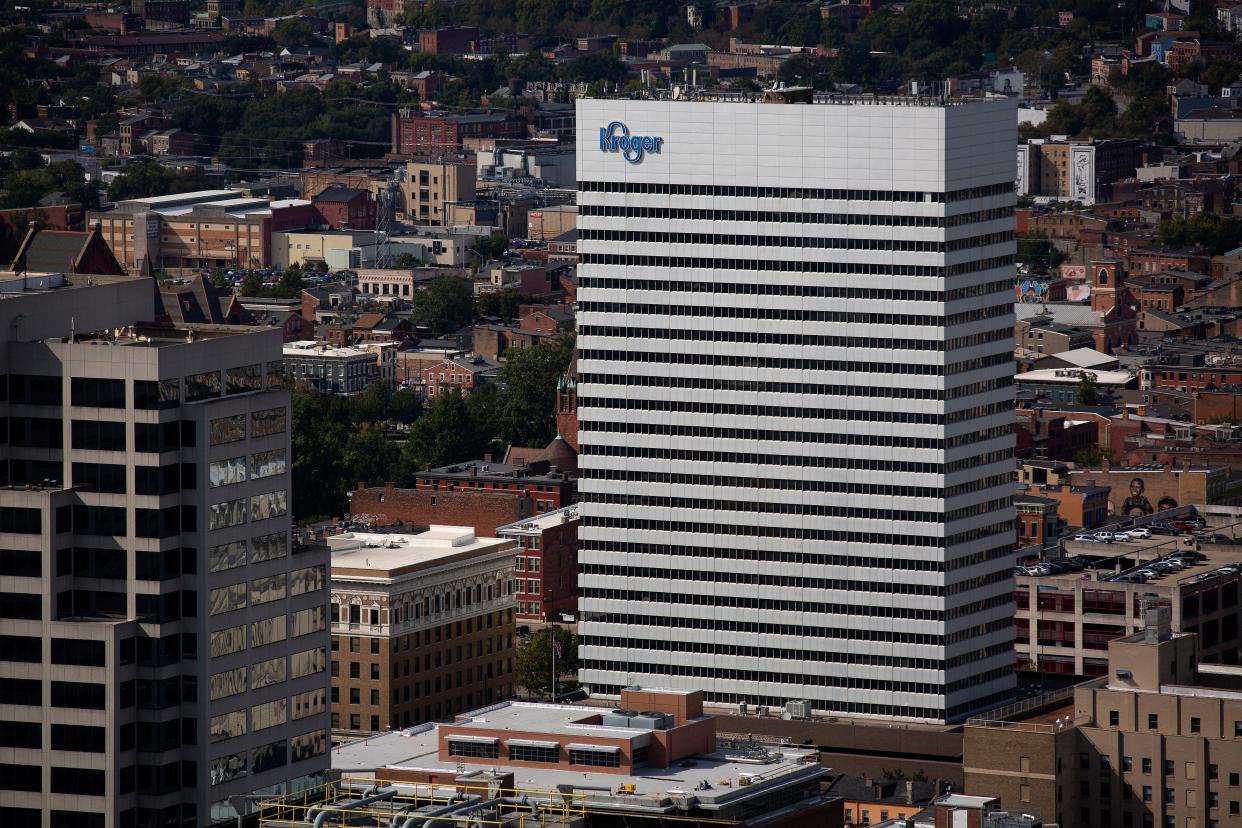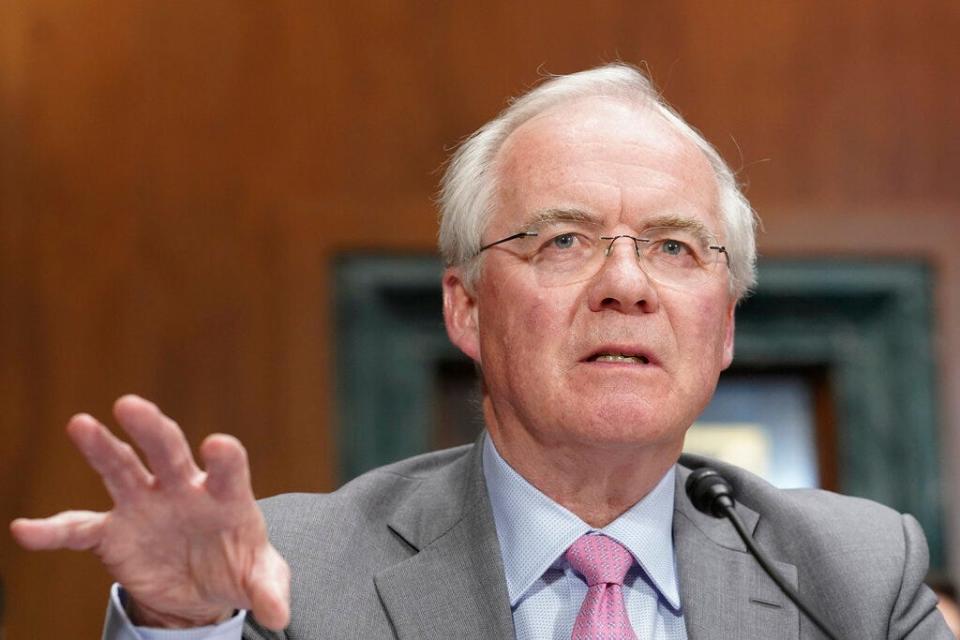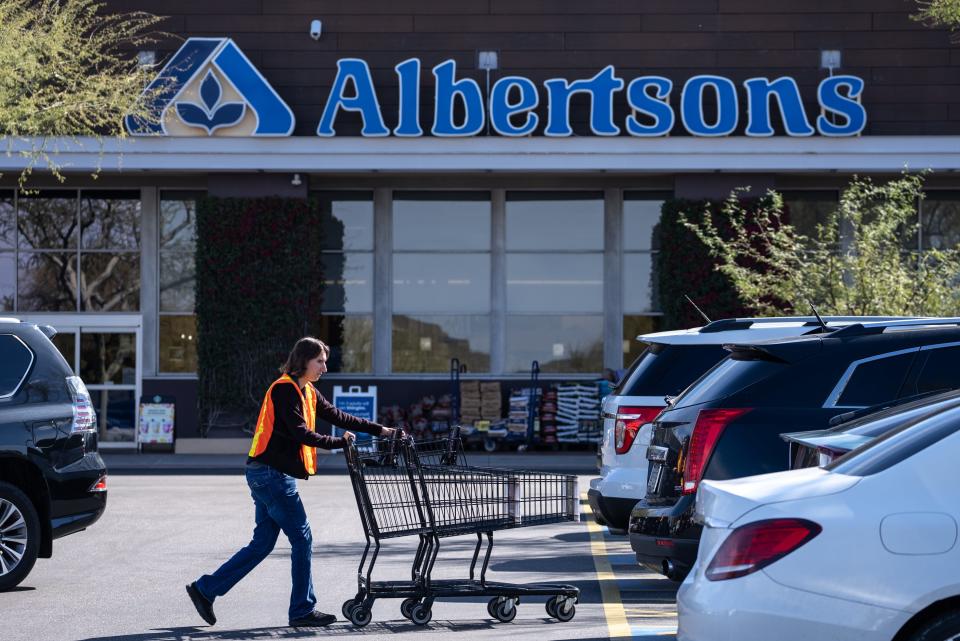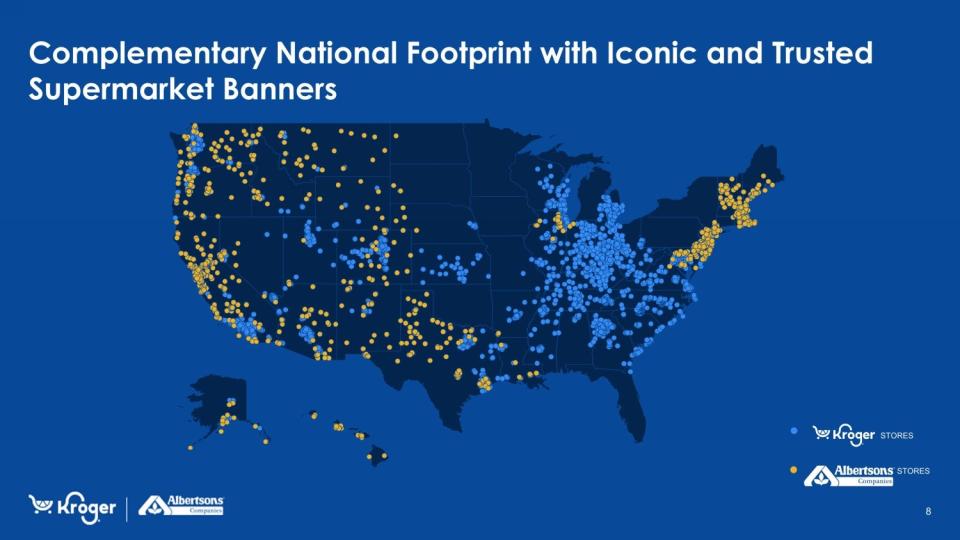FTC should allow Kroger-Albertsons merger to go through | Opinion

There has been growing speculation about whether the Federal Trade Commission will seek to challenge the $24.6 billion merger that Cincinnati-based Kroger and Idaho-based Albertsons announced in October 2022. The combined company would be the third-largest food and grocery retailer, behind Walmart and Amazon. Based on the draft merger guidelines the FTC recently announced jointly with the U.S. Justice Department, as well as recent comments from FTC Chair Lina Khan, those reading the tea leaves expect the agency will move to block the merger, even if the companies offer to spin off stores to competing chains.
As we highlight in a recently published issue brief, we expect the FTC will face an uphill battle in court. Kroger CEO Rodney McMullen has indicated the company is "committed to litigate" if the agency attempts to block the merger. And given that the agency has already lost several notable battles in recent months − most recently involving Microsoft’s acquisition of Activision − both the law and economic reality may not be on the regulator’s side.
For decades, the FTC has clung to a narrow definition of supermarkets that only includes stores in which consumers can buy nearly all of their weekly food and grocery needs in a single trip. This definition includes traditional food and grocery retailers, such as Kroger and Albertsons, as well supercenters with a grocery section, such as some Walmart and Target stores. But critically, the FTC’s definition excludes warehouse clubs like Costco. It also excludes e-commerce services such as Amazon.

Today’s consumers, however, are not one-stop shoppers. Most consumers shop more than once a week, and they "trip hop" across a wide range of retail formats. As a result, over time, competition from supercenters and club stores have taken a large bite out of supermarkets’ share of food and grocery spending.
Since the FTC adopted its current market definition, online shopping and home delivery have also grown from niche services that served only 10,000 households nationwide a quarter century ago to a situation where one in eight consumers say they purchase their groceries mostly or exclusively online. Any attempt to block the merger based on the mistaken assumption that supercenters, club stores and online shopping do not exert pressure on traditional supermarkets Kroger and Albertsons will − and should − face a stiff challenge in court.
Some opponents of the merger have raised the specter of potential market power in labor markets that would reduce employee wages. These concerns are overblown and will be nearly impossible to demonstrate if the merger were to be litigated. The market for labor in the retail sector is highly competitive, with workers having a wide range of alternative employment options. More importantly, both Kroger and Albertsons are highly unionized. Through their collective-bargaining agreements, these unions exert their own market power.

Historically, the FTC has allowed most supermarket mergers to proceed with divestitures − that is, the sale of some locations in markets where the combined firm would have very large market share. For example, Price Chopper and Tops sold off 12 of their stores when they merged, the merger of Ahold and Delhaize saw 81 stores sold off; and Albertsons’ own merger with Safeway included the divestiture of 168 stores.
Despite this long history of divestitures serving as an appropriate and adequate remedy in supermarket mergers, some point to the failed Albertsons/Safeway divestitures to Haggen Food & Pharmacy in the Pacific Northwest as evidence that spinoffs are no longer an appropriate remedy. But Haggen was a small regional chain with only 14 stores, mostly in Oregon, and it went heavily into debt to buy the divested stores. Those are issues that should have been addressed when the FTC and the merging parties negotiated the consent order.
Any divestitures associated with the Kroger/Albertsons merger should learn from the Haggen experience rather than view it as a justification to reject reasonable divestiture options.

Depending how the court rules in any challenge of the Kroger deal, the market definition for future supermarket mergers may be substantially revised. Moreover, if the FTC attempts to litigate based on labor-market concerns, the agency runs the risk of a humiliating loss that could stymie future attempts to expand the role of labor concerns in competition enforcement and policy.
The FTC should allow the merger to go through, take a win on some store spinoffs, and save the uphill fighting for battles they can win.
Eric Fruits is a native of Montgomery, Ohio, and a senior fellow with the International Center for Law & Economics (ICLE). Geoffrey Manne is ICLE’s president.


This article originally appeared on Cincinnati Enquirer: FTC should allow Kroger-Albertsons merger to go through | Opinion

